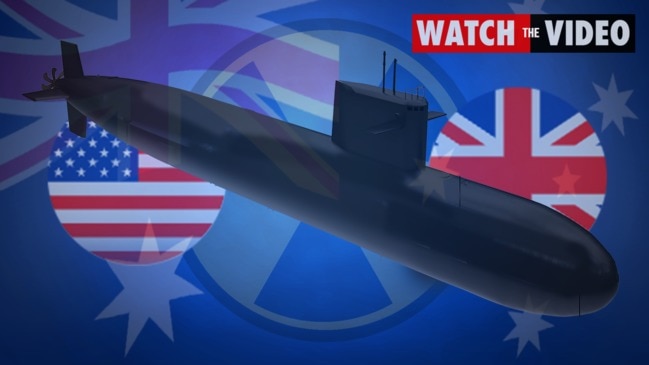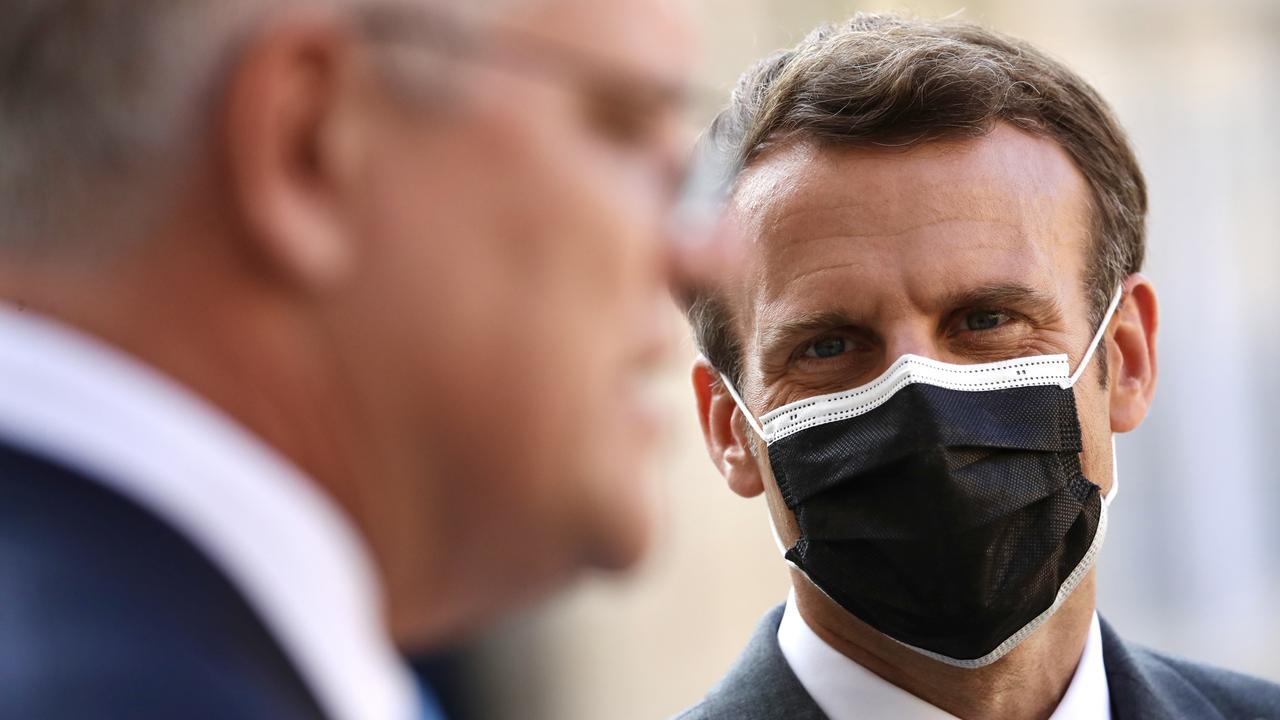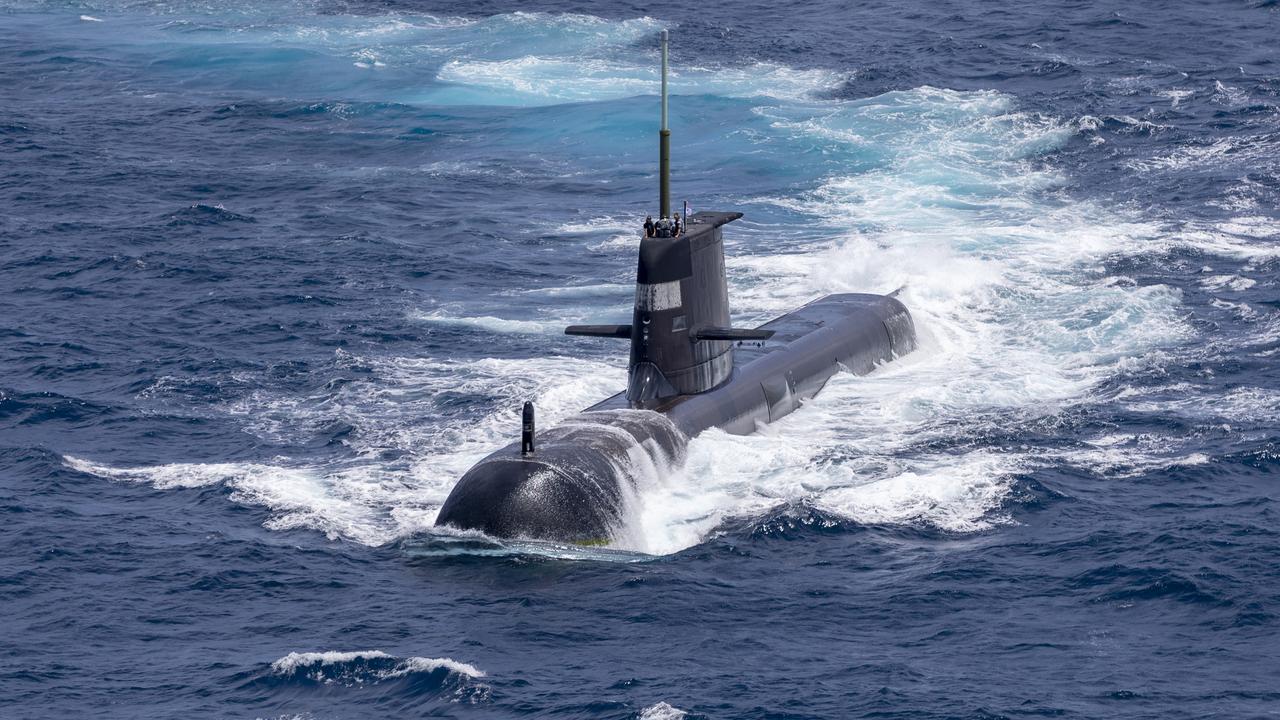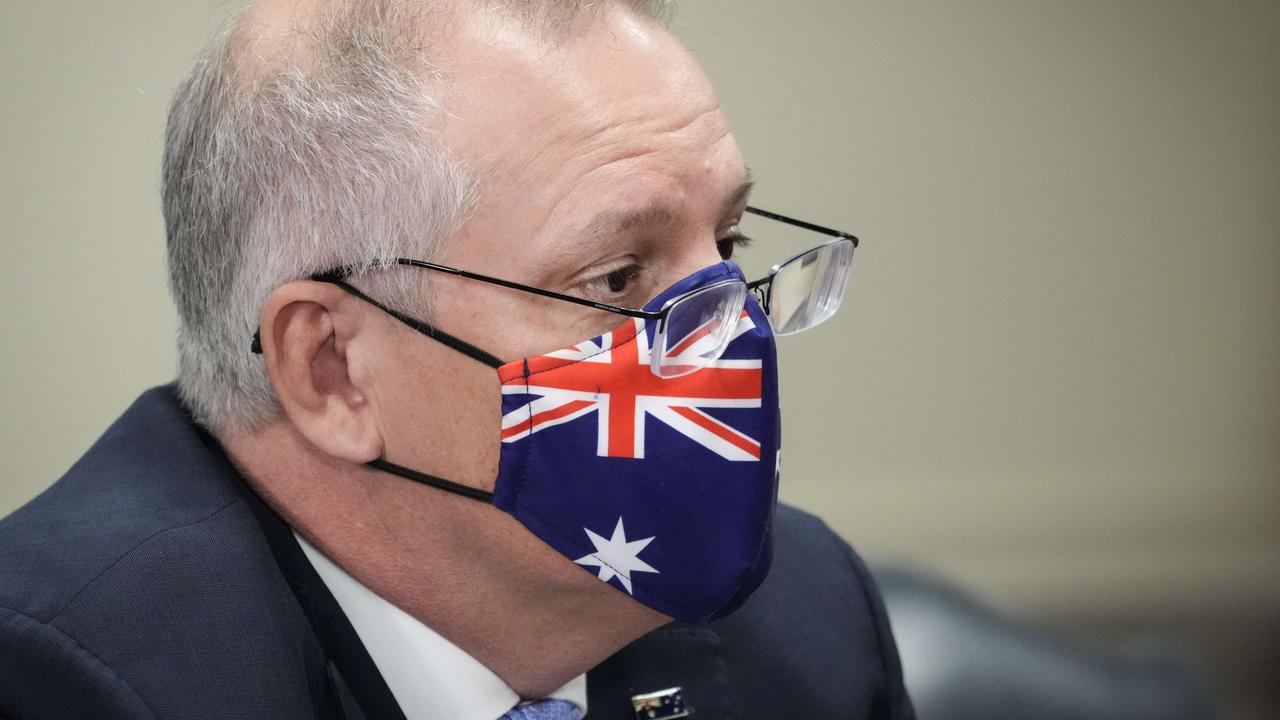France says ambassador to return to Australia with ‘two missions’ amid AUKUS submarines row
France has spectacularly sent an official to Australia with “two missions” amid fury at our alleged back-stabbing over the AUKUS submarine deal.

France has spectacularly sent its ambassador to Australia back to Canberra to carry out “two missions” amid a fierce dispute over a new defence pact that scrapped a $90 billion submarine construction contract between the two nations.
Last month, France recalled its envoy to Australia in a diplomatic protest over Canberra’s decision to call off a contract to buy French submarines — a move that France saw as a stab in the back.
However, French Foreign Minister Jean-Yves Le Drian told parliament on Thursday morning he had “now asked our ambassador to return to Canberra, with two missions”.
He said they were to “help to redefine our relationship with Australia in the future... and firmly defend our interests in the implementation of Australia’s decision to terminate the submarine program”.

French President Emmanuel Macron reacted furiously to Australia’s announcement on September 15 that it was scrapping its multibillion-dollar submarine contract with France in favour of a new deal negotiated in secret with the US and Britain, referred to as AUKUS.
French Foreign Minister Jean-Yves Le Drian accused Australia of back-stabbing and the United States of betrayal, calling the move reminiscent of the unilateralist attitude of President Biden’s predecessor Donald Trump.
Paris recalled its envoys to both Australia and the United States over the furore.
But President Macron later ordered the French ambassador to Washington to return to his post after a call with US President Joe Biden, which helped soothe tensions.
France however made clear it was not in as big a rush to mend fences with Australia, and kept its envoy to Canberra in Paris.
France’s anger stemmed not only from the loss of the submarine deal — worth $50 billion in 2016 — but also the shattering of an alliance with Australia that it saw as a cornerstone of its Indo-Pacific security strategy.

Jean-Pierre Thebault, who had been the French Ambassador in Canberra since 2020, was recalled after France expressed outrage at being left out of the deal.
Speaking to Radio National late last month, Mr Thebault said France had been completely blindsided by Mr Morrison’s decision to accept the new deal.
“We discover(ed) through the press that the most important person in the Australian government kept us in the dark intentionally until the last minute and was not willing to at least have the decency to enter conversation about the alternative,” Mr Thebault said.
“This is not an Australian attitude towards friends.”
“Maybe we’re not friends.”
Mr Morrison had previously rejected that he had not warned France about the new deal, insisting he told French President Emmanuel Macron in June that Australia might scrap its original submarine agreement.
“I made it very clear. We had a lengthy dinner there in Paris about our very significant concerns about the capabilities of conventional submarines to deal with the new strategic environment we’re faced with,” the PM told FiveAA Radio.
“I made it very clear that this was a matter that Australia would need to make a decision on in our national interest.”

But the French Ambassador insisted France had never been warned about the potential for a new deal which would exclude them.
“There have always been discussions about how the program addresses the needs of Australia and it was the exchanges on those subjects that kept us busy until the last minute,” Mr Thebault said.
“But in no way was it said to us that this could lead to an alternative program.
“This should have normally been the case between trusted allies.”
Mr Thebault denied reports that his country intended to lobby the European Union to reject a free-trade agreement with Australia.
“No, we’re not lobbying Europe to do this,” he told Radio National.
“At this stage negotiations do continue and indeed there is a strong interest I recognise for Australia to have a free-trade agreement with the EU.
“Australia should have all reasons to be very much willing to strike an agreement with the EU.”
– with AFP and NCA NewsWire




